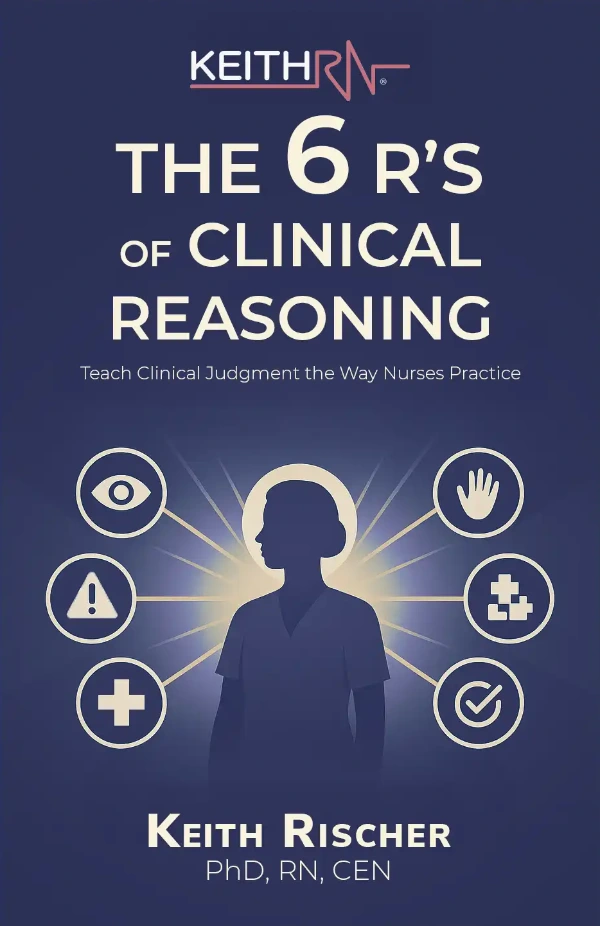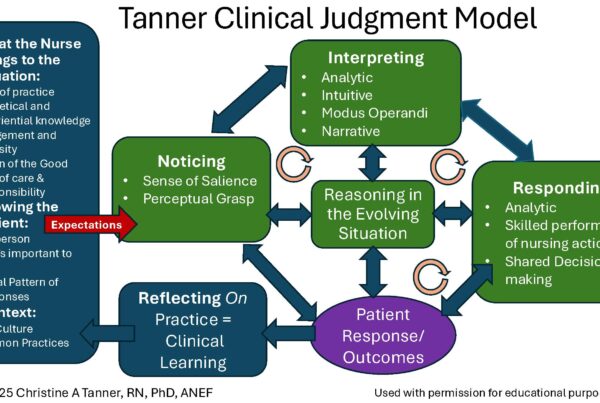
Academic integrity is a cornerstone of professional nursing practice. Yet for many nursing faculty, maintaining integrity in the classroom and clinical setting has become an increasingly complex and emotionally charged responsibility. In my recent dissertation research, “Nursing Faculty’s Experiences with Managing Academic Integrity in Prelicensure Nursing Education,” I examined the day-to-day realities faculty face in upholding academic standards.
What I discovered was both validating and eye-opening: faculty are deeply committed to academic honesty, but often face significant challenges in enforcing it.
Faculty Are Not Trained in Academic Integrity Management
A recurring concern among participants was the lack of formal preparation for handling academic misconduct. While faculty are expected to uphold rigorous standards, most reported receiving little to no training on how to identify, document, or respond to academic integrity violations.
Many shared that their understanding of academic integrity policies was informal and reactive, learned through peer conversations, trial and error, or reading institutional policy manuals. One faculty member explained, “I don’t think I received any orientation on academic misconduct… I had to seek those things out myself just to learn how to file a report.”
This gap in faculty development is concerning, given the high stakes involved. Nursing educators are responsible not just for academic outcomes but also for safeguarding the ethical foundation of the profession. Without adequate training, faculty are expected to enforce integrity without clear tools or guidance, leading to uncertainty and inconsistency.
While most participants described this lack of preparation, one recalled a positive experience in graduate school: “I felt very prepared to be a faculty member… we had assignments that posed scenarios… including ones about academic integrity.” This highlights the value of scenario-based learning in preparing future educators for real-world ethical challenges.
Moving forward, faculty development must include structured opportunities to learn about academic integrity management. Workshops, mentorship, and access to integrity officers or peer support could significantly strengthen faculty confidence and consistency in handling these issues.
Inconsistencies and Institutional Gaps
Another theme that emerged was inconsistency in administrative support. Participants described a wide range of experiences when reporting or managing misconduct. Some felt empowered. One said, “The administrator was in the meetings with me… and said, whatever you decide, I’ll support you as long as you have good rationale.” That kind of support reinforced faculty authority and institutional commitment to integrity.
But others described feeling discouraged from their experiences. One faculty member shared, “We didn’t get the support we needed. The student only got a warning… and they cheated again in another course.” Lack of meaningful consequences not only demoralized faculty but also sent conflicting messages to students about what behaviors would be tolerated.
These inconsistencies contribute to confusion, inequity, and weakened standards across nursing programs. Faculty need clear, consistent backing from administrators to ensure policies are enforced fairly, and to avoid burnout and frustration.
Teaching Integrity Proactively
Despite these challenges, faculty were not solely focused on catching misconduct. Many saw themselves as educators of integrity, committed to fostering ethical development in their students. One common strategy was proactive communication. “I have a first-day orientation,” one participant shared. “We go through the syllabus and talk openly about what I consider cheating, plagiarism, and collusion.”
Others described how they embed ethics and professionalism into their courses, not just through lectures but through role modeling and conversations about real-world consequences. As one participant noted, “I talk about nursing ethics and how every nursing decision is an ethical decision.” Another echoed this sentiment: “We talk about nursing as a trusted profession… where it’s important that we do the right thing even when no one’s looking.”
These efforts show that faculty are actively shaping not just students’ knowledge but their professional identities, encouraging them to become nurses who value honesty, accountability, and trust.
Based on these findings, here are several key recommendations for nursing programs and administrators:
- Develop Clear, Supportive Policies: Ensure that academic integrity policies are both transparent and consistently enforced across programs.
- Educate the Educators: Integrate academic integrity management into graduate nursing curricula and faculty onboarding so educators are prepared from the start.
- Provide Faculty Training and Support: Offer workshops, peer discussion groups, and mentorship to help faculty navigate ethical challenges with confidence.
- Create a Culture of Integrity: Promote values-based education where ethics and professionalism are embedded across the curriculum, not just addressed when violations occur.
Closing Thoughts
Academic integrity isn’t just about catching cheaters. It is about shaping trustworthy, ethical, and safe future nurses. Faculty are on the front lines of this mission, yet they are too often underprepared and under-supported in their role.
If we want to graduate students who embody the highest standards of the nursing profession, we must also support the educators teaching them how to get there with integrity.
Amanda Tracy – EdD, RNC-OB, CNE
Dr. Amanda Tracy is an Assistant Professor of Nursing at Concordia College in Moorhead, Minnesota. With over a decade of experience in nursing education, she has supported students across multiple institutions. A registered nurse for 17 years, Dr. Tracy’s clinical expertise centers on medical-surgical and inpatient obstetric nursing. She continues to practice per diem as a labor and delivery nurse at Sanford Health in Fargo, North Dakota. Her dissertation explored how nursing faculty experience and manage academic integrity in prelicensure nursing programs. She has been published in the Journal of Nursing Education.
The Ultimate Solution to Develop Clinical Judgment Skills
KeithRN’s Think Like a Nurse Membership
Access exclusive active learning resources for faculty and students, including KeithRN Case Studies, making it your go-to resource.






This article is very insightful and makes me question if I am doing enough to instill integrity into my students.